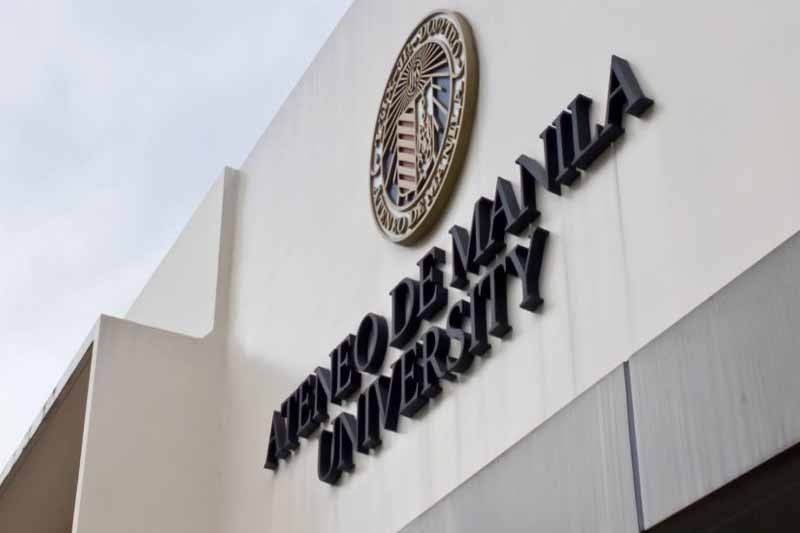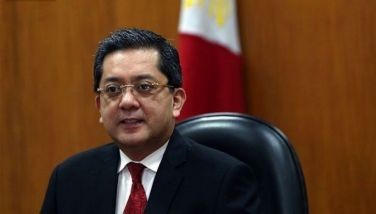Ateneo hears out student demands on sexual harassment allegations

MANILA, Philippines — In the wake of sexual harassment allegations against faculty members of Ateneo de Manila University, the school’s administration held a closed-door meeting Friday.
The meeting was attended by University President Ramon Villarin, Vice President Maria Luz Vilches, alumni, the student government and faculty leaders of Tuesday’s protest.
Ateneo Sanggunian President Quiel Quiwa told Philstar.com in a phone call that management emphasized the importance of having students file complaints through official channels. “Sanggu is also in contact with people who have come forward online over the past two weeks. We’re assisting them to go through the process with Gender Hub,” Quiwa said.
The meeting, among other things, highlighted the need for an external audit of existing systems, with the possibility of consulting other institutions including UP Diliman and Miriam College to be part of the process.
The Ateneo community has been in uproar the past week over another allegation of sexual harassment at the hands of a faculty member. Over 1,000 Ateneo alumni signed a petition calling for the university to act on the longstanding issue and condemning what they said were "inadequate and opaque responses".
The Ateneo Loyola Schools Faculty Association in their own statement called for a no-contact policy while students of the school's Philosophy program demanded the passage of a faculty code of conduct.
Need for formal complaint
According to Quiwa, the university said that they could not fire erring professors “out of [the community’s] demands” as stipulations in the Labor Code of the Philippines prevented them from doing so without formal complaints filed.
According to a Bureau of Labor Relations briefer on termination of employment, “An employer shall observe procedural due process before terminating one’s employment.” The briefer goes on to say that constitutive elements of the aforementioned due process include:
- A notice of intent to dismiss specifying the ground for termination, and giving said employee reasonable opportunity within which to explain his or her side;
- A hearing or conference where the employee is given [the] opportunity to respond to the charge, present evidence or rebut the evidence presented against him or her; and
- A notice of dismissal indicating that upon due consideration of all the circumstances, grounds have been established to justify termination.”
However, the Labor Code’s security of tenure article says that “In cases of regular employment, the employer shall not terminate the services of an employee except for a just cause.” Article 297 of the Labor Code goes on to say that an employee may be terminated for “serious misconduct or willful disobedience by the employee of the lawful orders of his employer or representative in connection with his work.”
At a media briefing with campus journalists, the Sanggunian said that they also demanded the restructuring of the school’s Committee on Decorum and Investigation (CODI), to whom sexual harassment cases and complaints are forwarded. “[It]’s still dependent on the Safe Spaces Act, [and its] implementing rules and regulations na ilalabas this month.”
“We’re still discussing which processes we can disclose,” a Sanggunian representative said after being asked about the issue of transparency in investigative proceedings.
Pressure to trust the system
“Some of the cases online didn’t even reach [CODI],” Quiwa said. “[The] challenge for us [is] how do we make people file?”
Quiwa admitted that many students found the official processes intimidating because of the red tape they would have to cut through. On top of having to retell their stories, students would also have to get their documents notarized.
Also discussed in the meeting was the creation of a “mechanism to support survivors in the process.” A report the Sanggunian sent to Philstar.com revealed that only 29.5% of sexual harassment cases were properly filed and resolved with the school, while 31.6% of cases filed lay suspended in what many online have complained as a long process. The remaining 39.5% did not file any official cases with the university.
“May pressure din ngayon to trust the current system while we’re trying to make it evolve. It will take time for the new systems, codes, and processes to be implemented. Maraming consultations.”
For now, the Sanggunian said they pushed for a No-contact Order between an alleged sexual harasser in faculty and his survivors. Quiwa said they were going to look for actual complainants to file with the school administration and bolster the case against the professor.
Ateneo claimed that 80% of sexual harassment cases filed with the administration resulted in the termination of contract. However, the numbers behind this statistic were not clarified in the meeting. The Sanggunian proposed the school release these numbers as well.
The university administration also clarified that one faculty member accused of harassment was put on 30 days of what the school called “preventive suspension” as part of their 45-day sanction from the administration.
The first safe space is the truth
Sen. Risa Hontiveros on Thursday took to her Twitter account to pan the school's statement on the issue released Wednesday, writing that “the law protects identities of the accused if they are minors, not adult sex offenders.”
This came in response to the statement released by the school’s University Marketing and Communications Office which claimed data privacy and confidentiality restrictions in the act, which Hontiveros wrote, were why they could not disclose information on investigative proceedings.
Republic Act No. 11313 or the Safe Spaces Act stipulates in Article IV, Section 17c that independent internal mechanisms “guarantee confidentiality to the greatest extent possible.”
“I wish to set the record straight: the Safe Spaces Act defends the harassed, not the harassers, she said. “No space is safe for as long as sex offenders are allowed to thrive.”
Hontiveros sounded off again Friday, saying, "The Safe Spaces Act was passed into law to keep potential victims safe from different forms of gender-based harassment [and] abuse."
“It is not meant to insulate offenders from accountability. Mga mahal, the first safe space is the truth.”
- Latest
- Trending





























